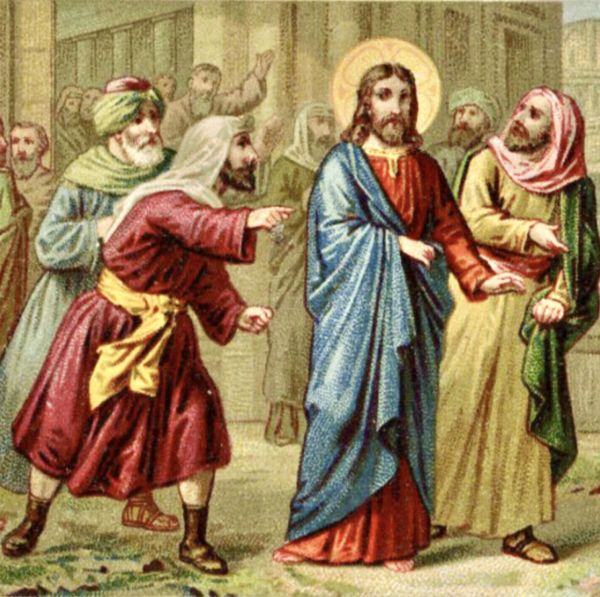In the Lk passage, the unbelief and mistrust of the people of Nazareth towards Jesus emerges, the provocations put forward and the Lord's replies emphasising the deaf acceptance of his Message.
Francis of Assisi admired the ordinary holiness of anyone, but especially of his brethren.
He often repeated that the preacher who seeks his own glory in preaching rather than the salvation of souls is to be pitied.
To them would be preferable one who was simple and without a 'tongue', but capable of pushing others to the good.
He rejoiced greatly when he knew that his brothers scattered around the world, with the daily holiness of their lives, induced many to return to the right path.
One day, he went to a church in the hamlet of Assisi and started cleaning.
There he learned that a certain John, a simple man, was ploughing a field of his own near the church.
"And immediately he went to him and found him intent on cleaning. He said to him, 'Brother, give the broom to me, I want to help you.'
He took the broom and finished cleaning.
Then they sat down, and John said: "For a long time I have intended to serve God, especially since I heard about you and your brothers. But I did not know how to join you. But since it pleased the Lord that I should see you, I am willing to do whatever pleases you".
Observing his fervour, Francis rejoiced in the Lord, also because he then had few brothers and because this man with his simplicity gave him confidence that he would be a good religious".
Francis invited him to give the goods he possessed to the poor, as the Gospel says.
John, the simple man, did not let himself be told twice and obeyed the Poverello in everything, selling an ox to give to the poor.
The Sources continue:
"Francis, who always liked pure and holy simplicity in himself and in others, had great affection for John.
And as soon as he had dressed him in the habit, he took him as his companion.
He was so simple that he considered himself obliged to do whatever Francis did.
When the saint was praying in a church or in a secluded place, John wanted to see him and stare at him, to repeat all his gestures: if Francis bent his knees, if he raised his joined hands to heaven, if he spat or coughed, he would do the same.
Although enchanted by such simplicity of heart, Francis began to rebuke him. But John replied: "Brother, I have promised to do all that you do; and therefore I intend to do all that you do".
The Saint was amazed and delighted at such purity and simplicity. John made such progress in all the virtues that Francis and the others were amazed at his holiness.
And not long afterwards he died in this holy perfection. Francis, filled with joy inwardly and outwardly, told the brothers about his life, and called him "Saint John" instead of "Brother John" (FF 1566).
The onlookers marvelled at the holiness manifested in the ordinary of one who lived the Word concretely and asked: «Is not this the Son of Joseph?» (Lk 4:22).
The simple and transparent life bewilders those who have abstruse ideas of holiness; they believe it to be linked to sumptuous descent, forgetting that God loves and proclaims in the ordinary.
«No prophet is accepted in his own country» (Lk 4:24)
Monday 3rd wk. in Lent (Lk 4,24-30)












